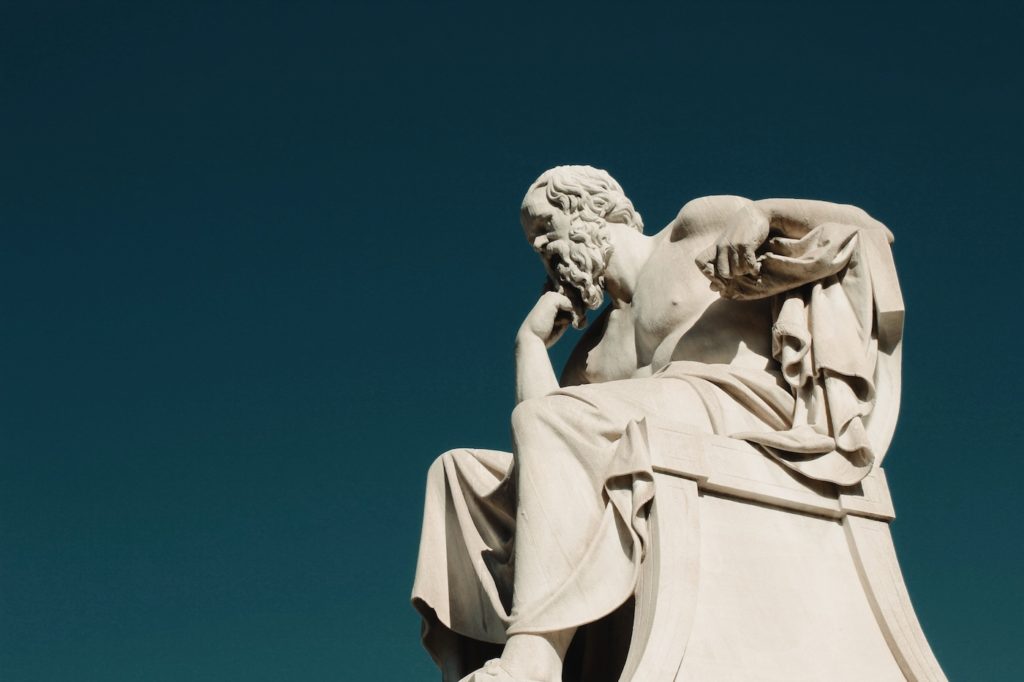The recent announcements about the founding of the University of Austin, “dedicated to the fearless pursuit of truth,” were received with excitement by those of us who share a concern about the censorship of thought—the groupthink, cancel culture, and wokeness—that plagues so many of today’s universities. Others denied the problem (it’s not censorship, it’s “intellectual turbulence”).
One crucial question remains unaddressed: is the fearless pursuit of truth sufficient to form the basis of a new university? Is it enough to be always in pursuit of truth? Or does one hope, along the way, to find, keep, and act on some of it? Is a commitment to truth and freedom in the abstract sufficient to ground an academic community, or is something else—a larger tradition— required? The essence of a tradition is the set of truths that thoughtful people who have gone before us have discovered and tested, across generations, and deemed worthy of keeping. The pursuit of truth is like the pursuit of a spouse: at some point you hope to catch the object of your pursuit, get married, and have babies.
Provisional Answers
The vitally important questions that face college-age students (and everyone else) today demand answers. Questions like: why am I here? What is the meaning of my life? What should I do with my life? How should I live? Is life just a grand illusion?—these can’t be put off forever. Even when, because of their size and complexity, such questions cannot be answered definitively, they must be answered at least provisionally.
Start your day with Public Discourse
Sign up and get our daily essays sent straight to your inbox.To take an extreme example, serious scholars continue to debate whether the visual world isn’t a grand illusion. We can’t prove, definitively, that the world isn’t a grand illusion; if we could, no further debate would be necessary. But every day (or most days) we all get out of bed and carry on with our lives. We accept, at least provisionally, that the world is not a grand illusion, and proceed on that acceptance. We may allow that our acceptance isn’t final, in the sense that new evidence or argument at some point in the future might cause us to reconsider, but for now we agree to act on the assumption that the world we inhabit is real.
The communal pursuit of truth cannot even begin without some consensus within the community about the nature of truth and the norms and methods for its pursuit.
Indeed, the communal pursuit of truth cannot even begin without some consensus within the community about the nature of truth and the norms and methods for its pursuit. The Stanford Encyclopedia of Philosophy, for example, lists numerous rival—and largely incompatible—theories of truth. Which one will the University of Austin be pursuing? That question requires an answer right at the start.
Which foundational questions might the University of Austin—and any other academic community committed to the pursuit of truth—need to answer in order to ground its existence as an academic community? During a series of meetings with our junior faculty, while I was provost of my university, we came up with what we thought were some of the most important ones, grouping them into five categories (the categorization was based on work done by the Universidad Francisco de Vitoria in Spain):
- Anthropological questions—questions about the human person: what does it mean to be a human person, and what assumptions do we make about our origins, abilities, flourishing, and destiny? What can we learn from our various disciplines about what it means to be human?
- Epistemological questions—questions about truth: what are the foundational truths underlying our various disciplines, and how do we know them? What methods do we use to discover new knowledge, and what is the status of that knowledge?
- Existential questions—questions about meaning: what is the purpose of what we teach? Why is it important for our students to learn about, and why do we dedicate our working lives to it?
- Metaphysical questions—questions about existence: what do we believe about the nature of reality? What is the foundation of the phenomena that we experience and study?
- Ethical questions—questions about right and wrong: what determines right and wrong in our community? What norms exist regarding proper practice, and the appropriate use of our discoveries? Where do these norms come from?
An academic community that is committed to the pursuit of truth needs a consensus on answers to these questions. Even the mundane, daily decisions of any human life presume some view of who we are as human beings, how we can know what is true, what is the meaning of what we already know, what is the nature of reality, and how we ought to behave. Often these views are merely implicit and unexamined. But an academic enterprise that pursues truth cannot afford to live such an unexamined life. Else it will fracture into factions, and any hope of existing as a community in search of truth will be lost.
Fractious Universities
This indeed describes the vast majority of universities in this country today. They have no consensus around these questions, they have abandoned the pursuit of truth in a larger sense, and indeed in many cases deny that most of these questions are answerable at all. The philosophically weak foundations that result can lie hidden for many years, as faculty focus more and more on their own particular specializations. But the result is often enough fragmentation, division, and moral turbulence.
Universities that are grounded in a coherent set of responses to foundational questions exist, and are flourishing: Thomas Aquinas College in Santa Paula, California, University of Dallas in Texas, Hillsdale College in Michigan, and the aforementioned Universidad Francisco de Vitoria, for example. My own university, the Catholic University of America, strives to be such a one; our university’s Statement of Aims echoes that of the University of Austin: for us, “the only constraint upon truth is truth itself.”
It is a faculty’s commitment not just to teach, but to live by, their founding tradition that enables their institution to resist the relativism that is rolling over higher education. Anything less leaves the community open to fragmentation.
It is not a coincidence that each of these colleges and universities is grounded in a religious or philosophical tradition that has developed a coherent set of answers to the foundational questions listed above, over centuries, or even millennia. It takes long, hard work to answer such questions. It is a faculty’s commitment not just to teach, but to live by, their founding tradition that enables their institution to resist the relativism that is rolling over higher education. Anything less leaves the community open to fragmentation.
St. Paul wrote, “Test everything; hold fast to what is good.” What will the faculty at the University of Austin hold fast to? What founding beliefs will they all agree on? Without a consensus on big questions like these—questions that cannot be answered overnight, and therefore can usually only be answered within the context of a tradition spanning many generations—the University of Austin is in danger of re-running the American higher education experiment with the same initial conditions, and ending up in the same place. Truth becomes “my truth” versus “your truth,” and meaning becomes whatever you want it to be.
Proceeding solely on a commitment to the pursuit of truth, and not to a larger tradition, after a few years and potentially hundreds of millions of dollars invested, they are likely to end up just as fractured and confused as the rest.













